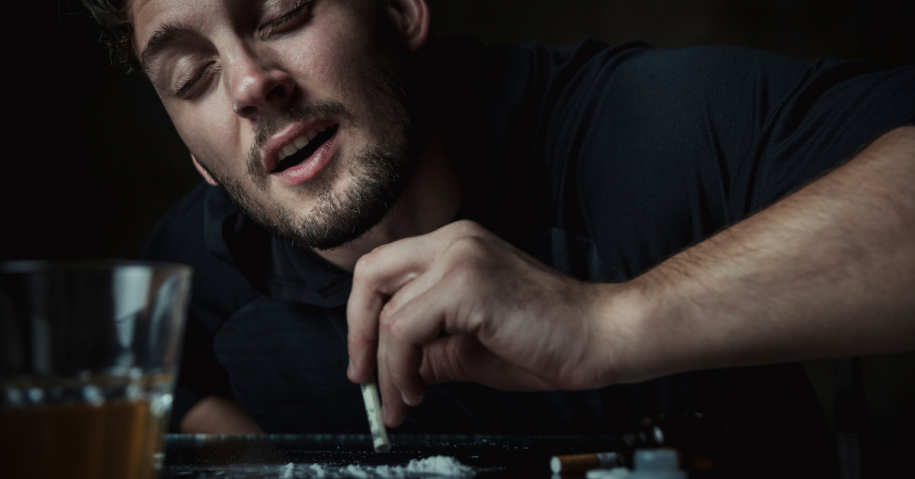Cocaine, often known by its street names including “coke” or “blow,” is a potent and illicit stimulant. It is frequently used due to its intense yet fleeting high. Recognizing the signs of cocaine addiction can be crucial in providing immediate help and support to those struggling with this destructive habit. This article provides an in-depth look at understanding the nature of cocaine addiction, the impact it has on the brain and body, and the physical, behavioral, and psychological signs of cocaine use.
What is Cocaine?
Cocaine is a highly addictive stimulant drug that impacts the central nervous system, leading to feelings of intense euphoria and heightened energy. The substance is derived from the leaves of the coca plant. It is typically distributed in the form of a white powder or as a crystallized rock, also known as “crack” cocaine. The substance can be snorted, injected, or smoked. Each method of ingestion leads to different intensities and durations of the high.
Understanding Cocaine Addiction
Cocaine addiction is a complex issue that extends beyond the initial allure of the substance’s short-term effects. When cocaine is ingested, it reaches the brain within seconds. In the brain, it blocks dopamine, serotonin, and norepinephrine reabsorption back into the nerve cells. This chemical buildup results in feelings of a blissful high. The continuous activation of the brain’s reward system by cocaine leads to a desensitization of the brain’s pleasure response. With continued use, it is difficult to experience pleasure from everyday activities or natural rewards. Therefore reinforcing the need for cocaine to feel any sense of happiness or reward.
Physical Signs of Cocaine Use
One of the first indicators of cocaine addiction is evident changes in a person’s physical appearance. Some of the physical symptoms that may suggest cocaine addiction include:
- Rapid heart rate
- Elevated body temperature
- Dilated pupils
- Runny or bleeding nose
- Weight loss
- Insomnia
Behavioral Indicators of Cocaine Addiction
Changes in behavior can also indicate a person’s struggle with cocaine addiction. Some of these behavioral symptoms may include:
- Increased impulsivity or energy
- Engaging in reckless and risky behaviors
- Being secretive or dishonest about one’s whereabouts, activities, and associates
- Angry outbursts
- Borrowing or stealing money to pay for cocaine
Psychological Symptoms of Cocaine Use
The psychological repercussions of cocaine addiction can be significant. Some of the psychological symptoms of cocaine addiction can include:
- Mood swings
- Depression
- Irritability
- Paranoia
- Anxiety
Long-Term Effects of Cocaine Addiction
Chronic cocaine use can lead to serious long-term effects, including:
- Liver, kidney, and lung damage
- Increased risk for heart attacks and strokes
- Cognitive impairments
- Family and relationship problems
- Job loss and chronic unemployment
- Legal issues
Cocaine Withdrawal Symptoms
When a person attempts to stop using cocaine after developing an addiction, they will likely experience a range of withdrawal symptoms. Some common symptoms of cocaine withdrawal include:
- Intense cravings for cocaine
- Anxiety and paranoia
- Restlessness and irritability
- Fatigue
- Depression
- Mood swings
- Nightmares
Cocaine Overdose Symptoms
An overdose of cocaine is a medical emergency and can be fatal. Symptoms of a cocaine overdose can include:
- Irregular heart rate
- Chest pain
- High blood pressure and body temperature
- Breathing problems
- Confusion
- Panic
- Paranoia
- Tremors
Cocaine Addiction Treatment
Cocaine addiction is a treatable condition. With professional intervention, individuals can overcome the compulsion to abuse cocaine At Lighthouse Recovery, we help to address the co-occurring conditions that may have contributed to or resulted from the cocaine abuse. Cocaine addiction treatment involves a combination of detox to remove the drug from the body and treatment, like a partial hospitalization program.
Co-Occurring Disorders
Many individuals struggling with a cocaine addiction may also be experiencing one or more co-occurring mental health disorders. These can include anxiety disorders, bipolar disorder, depressive disorders, schizophrenia, and post-traumatic stress disorder (PTSD).
Recognizing the signs of cocaine addiction is crucial for early intervention and providing support to those in need. Treatment for cocaine addiction at Lighthouse Recovery Institute can lead to a healthier and brighter future free from the grasp of addiction.









